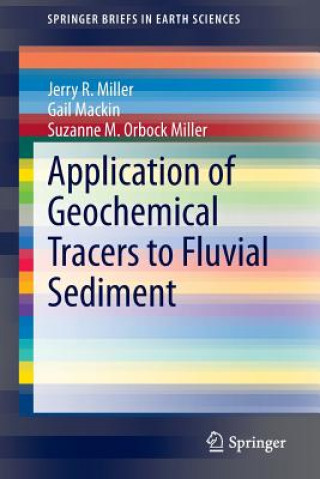
Delivery
Shopping guide





Doesn't suit? No problem! You can return within 30 days
 Gift voucher
any value
Gift voucher
any value
You won't go wrong with a gift voucher. The gift recipient can choose anything from our offer.
Application of Geochemical Tracers to Fluvial Sediment
 English
English
 161 b
161 b
 Delivery to Austria
Delivery to Austria
30-day return policy
You might also be interested in


This book takes an in-depth look at the theory and methods inherent in the tracing of riverine sediments. Examined tracers include multi-elemental concentration data, fallout radionuclides (e.g., 210 Pb, 137 Cs, 7 Be), radiogenic isotopes (particularly those of Pb, Sr, and Nd), and novel ( non-traditional ) stable isotopes (e.g., Cd, Cu, Hg, and Zn), the latter of which owe their application to recent advances in analytical chemistry. The intended goal is not to replace more traditional analyses of the riverine sediment system, but to show how tracer/fingerprinting studies can be used to gain insights into system functions that would not otherwise be possible. The text, then, provides researchers and catchment managers with a summary of the strengths and limitations of the examined techniques in terms of their temporal and spatial resolution, data requirements, and the uncertainties in the generated results.§§The use of environmental tracers has increased significantly during the past decade because it has become clear that documentation of sediment and sediment-associated contaminant provenance and dispersal is essential to mitigate their potentially harmful effects on aquatic ecosystems. Moreover, the use of monitoring programs to determine the source of sediments to a water body has proven to be a costly, labor intensive, long-term process with a spatial resolution that is limited by the number of monitoring sites that can be effectively maintained. Alternative approaches, including the identification and analysis of eroded upland areas and the use of distributed modeling routines also have proven problematic. The application of tracers within riverine environments has evolved such that they focus on sediments from two general sources: upland areas and specific, localized, anthropogenic point sources. Of particular importance to the former is the development of geochemical fingerprinting methods that quantify sediment provenance (and to a much lesser degree, sediment-associated contaminants) at the catchment scale. These methods have largely developed independently of the use of tracers to document the source and dispersal pathways of contaminated particles from point-sources of anthropogenic pollution at the reach- to river corridor-scale. Future studies are likely to begin merging the strengths of both approaches while relying on multiple tracer types to address management and regulatory issues, particularly within the context of the rapidly developing field of environmental forensics.§
About the book
 English
English
Categories


 Contact
Contact How to shop
How to shop
































